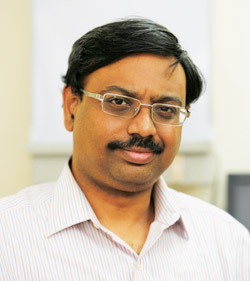
 Technological advances have contributed to decline in cardiovascular mortality rates globally, but unfortunately the same is not the case in our country
Technological advances have contributed to decline in cardiovascular mortality rates globally, but unfortunately the same is not the case in our country
By Dr Hygriv Rao

Cardiovascular diseases (CVDs) are a major developmental threat for India. A recent WHO report, entitled Global atlas on cardiovascular disease prevention and control, states that CVDs are the leading causes of death and disability in the world. Although a large proportion of CVDs are preventable, they continue to rise mainly because preventive measures are often found to be inadequate.
An ageing population and increased focus on cardiovascular diseases have led to surge in popularity of cardiovascular devices. The industry has contributed by refining the software and making it more user-friendly, particularly the multiple programmable vectors in Cardiac Resynchronisation Therapy (CRT) and telemetry options. Hardware tailoring to different anatomies has aided in easier implantation. Similarly the hardware available for complex arrhythmia ablation has improved. Programmes directed to physician training in arrhythmia related areas have helped to bridge the gap between medical curriculum and practice.
There has been an increase in device implanting centres, some of which have come up outside the metros. There is also an increase in number of implanting physicians with a number of interventional cardiologists doing implants. Programmes of third party payment for the underprivileged have been taken up in Andhra Pradesh, Karnataka and possibly some other states, where there is increase in number of pacemaker implants. The advantages of using the interventional cardiology approach include the avoidance of the scars and pain, and long post-operative recovery. Besides this, the hardware for CRTs has considerably improved making these procedures less time consuming. Overall there has been a significant growth.
Therapeutic advances have contributed to decline in cardiovascular mortality rates globally, but the same is not the case in our country. This is largely because of lack of accessibility to emergency healthcare services; majority of patients with cardiovascular diseases are unable to get basic drugs like aspirin, statins and beta-blockers. Government has to come up with policies that will address these issues. The regulatory regime must functions more effectively to make medical care affordable, medical expenses transparent, and medical education more relevant. Besides this, our country needs more healthcare professionals, to help create more awareness about the disease and the ways by which it can be controlled.

The polypill has been hailed as the magic bullet to heart problems. In future we can expect to have a combination of polypills for primary and secondary prevention. The concept of a polypill for everyone over 55 to cut heart disease by up to 80 percent was mooted over a decade ago, but the progress on this aspect has been rather slow. Physician and patient friendly devices with limited algorithms, that are also cost effective, are a must.
Remote monitoring is more efficient than scheduled office visits for picking up the kinds of arrhythmic events that physicians want to know about. Several studies have strengthened the evidence base built primarily on large registries suggesting that remote monitoring makes the following of device patients more efficient and potentially less costly. It cuts reliance on in-office visits, and is no less safe than conventional care. Scheduled device checks in the office can be many months apart, and further visits can be organised in the event of symptoms or device discharges.
In future, plans to incorporate remote monitoring technology will become more popular in centres in major metros. This kind of technology will also assist in diagnosis and treatment of patients residing in peripheral areas.
 About Author
About Author
Dr hygriv rao
is a Cardiologist and associated with CARE Hospital, Hyderabad.
His areas of expertise are Cardiac Electrophysiology,
ICD, Pacemakers, PTCA and PBMV.
Be a part of Elets Collaborative Initiatives. Join Us for Upcoming Events and explore business opportunities. Like us on Facebook , connect with us on LinkedIn and follow us on Twitter , Instagram.












